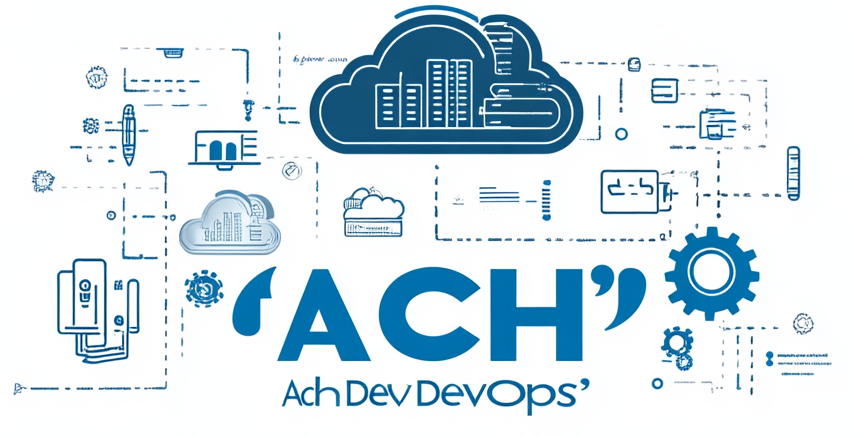The concept of DevOps—a fusion of Development and Operations—is central to modern software engineering. The DevOps job role focuses on improving collaboration between developers and IT operations to ensure a seamless, efficient software delivery process. This role is essential for organizations looking to bridge the gap between the development of software and its deployment, ensuring rapid, reliable, and continuous delivery of software products.
Learn more about the fundamentals of DevOps to deepen your understanding of how it integrates various practices to enhance software development.
Introduction to DevOps Job Role
A DevOps engineer is responsible for streamlining the software development lifecycle, from coding and deployment to maintenance and updates. They leverage automation tools, monitor systems, and optimize infrastructure to ensure that software products are not only developed efficiently but are also scalable and secure.
Explore current trends in DevOps to see how the role has evolved with the advent of new technologies and methodologies.
Importance and Relevance of DevOps
In today’s fast-paced digital landscape, the ability to deploy software quickly and reliably is crucial. DevOps practices are pivotal because they:
- Increase collaboration between developers and IT teams, breaking down silos that traditionally slow down the software development process.
- Enhance automation, which reduces human error and accelerates software delivery.
- Improve monitoring and performance, ensuring that software is deployed with minimal downtime and maximum efficiency.
Core Concepts of DevOps
Key principles of DevOps include:
- Continuous Integration (CI): Frequent merging of code changes into a central repository to automate testing and early detection of errors.
- Continuous Delivery (CD): Automated deployment of code changes to production environments, ensuring that new updates can be released at any time.
- Infrastructure as Code (IaC): Managing infrastructure through code, allowing for consistent environments that are easier to scale and manage.
- Monitoring and Logging: Continuous observation of systems to quickly identify and resolve issues, ensuring high availability and performance.
Applications of DevOps
DevOps is widely applicable across various industries, including:
- Finance: Ensures secure, compliant, and rapid deployment of financial applications.
- Healthcare: Facilitates the development of reliable and secure software solutions that enhance patient care.
- Technology: Supports continuous innovation and improvement in product quality.
Benefits of DevOps
Adopting DevOps practices offers numerous benefits, such as:
- Faster time to market
- Improved collaboration between teams
- Higher software quality due to continuous testing and integration
- Increased efficiency via automation
Challenges and Limitations of DevOps
While DevOps brings many benefits, it also presents challenges:
- Cultural resistance: Transitioning from traditional methods to a more collaborative, agile approach can be difficult for some organizations.
- Complexity of integration: Implementing DevOps practices into existing IT infrastructures requires careful planning and execution.
- Regulatory and security concerns: Ensuring compliance and security within DevOps practices, especially in highly regulated industries like finance and healthcare, can be challenging.
Case Studies/Examples
Several companies have successfully implemented DevOps practices:
- Netflix: Utilizes automation and continuous delivery to deploy hundreds of changes daily, ensuring a seamless experience for its users.
- Etsy: By adopting DevOps, Etsy increased its deployment frequency and reduced downtime, resulting in a more reliable platform.
The Future of DevOps
The future of DevOps is promising, with advancements in automation, AI, and cloud computing set to further enhance its capabilities. The rise of DevSecOps, which integrates security into the DevOps pipeline, underscores the growing importance of securing the software development lifecycle. Organizations that continue to adopt DevOps practices can expect:
- Increased innovation
- Faster delivery times
- Higher-quality software products
FAQs
- What is the purpose of a DevOps job role?
- The role is to bridge the gap between software development and IT operations, ensuring efficient, reliable, and continuous software delivery.
- How does DevOps impact software development?
- DevOps improves the speed and quality of software development by fostering collaboration, automation, and continuous improvement.
- Can DevOps be applied in non-IT industries?
- Yes, DevOps principles can be applied in various industries, including finance, healthcare, and retail, to enhance operational efficiency and innovation.
- What are the common misconceptions about DevOps?
- Some misconceptions include the idea that DevOps is just a set of tools rather than a cultural shift, or that it only benefits large tech companies.
